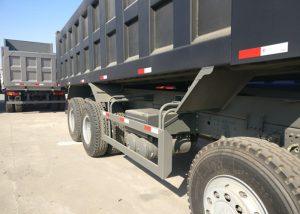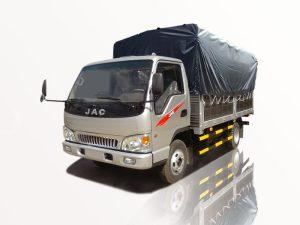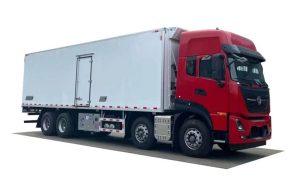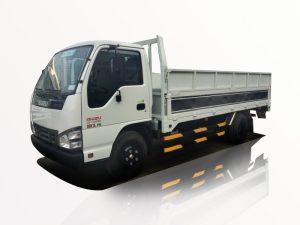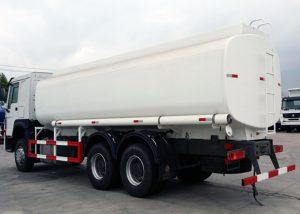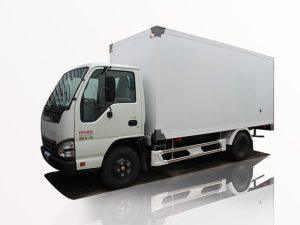Monday to Saturday - 8:00 -17:30
Everything You Need to Know About Importing a Truck from China
In recent years, the demand for trucks has seen a significant rise, especially in various industrial and commercial sectors. With China being one of the largest manufacturers of trucks globally, many businesses and individuals consider importing trucks from this country. This comprehensive article will guide you through everything you need to know about importing a truck from China, including the benefits, process, challenges, and tips for a smooth transaction.
Understanding the Truck Manufacturing Industry in China
China has emerged as a powerhouse in the global truck manufacturing industry. With numerous factories and a wide range of models, the country produces various types of trucks, including:
- Light-duty trucks
- Medium-duty trucks
- Heavy-duty trucks
- Specialty trucks (e.g., refrigerated, dump trucks)
The Quality and Variety of Trucks
Chinese manufacturers offer a variety of trucks that cater to different needs. Popular brands include:
- SAIC Hongyan
- Dongfeng
- FAW Group
- JAC Motors
Each brand has its specialties, with some focusing on light-duty vehicles while others produce heavy-duty trucks designed for more rigorous use.
The Advantages of Importing a Truck from China
Importing trucks from China offers various advantages:
Cost Efficiency
Generally, trucks from China are more affordable compared to those produced in other countries. This cost efficiency allows businesses to save money while acquiring the necessary vehicles.
Customizable Options
Most Chinese manufacturers provide customizable options for their trucks. Buyers can select specific features and configurations based on their needs.
Rapid Production and Delivery
Chinese factories are well-equipped to handle large orders and often have faster production times, ensuring that businesses can get their trucks when they need them.
Steps to Import a Truck from China
1. Research and Choose the Right Truck
The first step in importing a truck from China is conducting thorough research. Consider your specific needs, budget, and the types of trucks available. Utilize resources such as:
- Online marketplaces
- Manufacturer websites
- Industry forums
2. Verify Manufacturer Credentials
Once you’ve selected a manufacturer, verify their credentials. Look for the following:
- Business license
- Quality certifications (e.g., ISO 9001)
- Previous customer reviews
3. Contact the Manufacturer
Reach out to the manufacturer for quotes and detailed specifications. Make sure to inquire about:
- Pricing
- Shipping costs
- Warranty options
4. Negotiate Terms
Negotiation is crucial. Don’t hesitate to discuss pricing, payment terms, and shipping options. It’s also advisable to ask for samples or visit the facility if possible.
5. Arrange for Shipping
After finalizing your order, arrange for shipping. Common shipping methods include:
- Container shipping
- RoRo (Roll-on/Roll-off) shipping
Make sure to understand the associated shipping costs and estimated delivery time.
6. Handle Customs Clearance
When importing a truck, you must comply with your country’s customs regulations. This may involve:
- Filing paperwork
- Paying import duties and taxes
- Meeting safety and environmental regulations
| Item | Description |
|---|---|
| Import Duty | A tax levied on goods when they are transported across international borders. |
| Customs Broker | A licensed individual or firm that helps importers and exporters meet governmental requirements for international shipments. |
7. Register the Truck
Upon receiving the truck, register it with your local vehicle registration authority. Make sure you have all supporting documents ready, including:
- Bill of lading
- Customs clearance document
- Certificate of origin
Challenges of Importing Trucks from China
Quality Control Issues
One of the primary challenges is ensuring the quality of the truck you receive matches the manufacturer’s promises. Requesting samples or third-party inspection reports is essential.
Language Barriers
Language differences can create misunderstandings. It might be beneficial to work with a translator or hire a consultant who is familiar with international trade.
Changing Regulations
Import regulations can change frequently. Stay informed about any changes in customs duties, emission standards, and safety requirements.
Cost Breakdown of Importing a Truck from China
Understanding the costs involved can help in budgeting. Here’s a general breakdown:
| Cost Item | Estimated Cost |
|---|---|
| Truck Price | $10,000 – $50,000 |
| Shipping Costs | $1,000 – $3,000 |
| Customs Duties & Taxes | 5% – 20% of the truck’s total value |
| Insurance | $200 – $1,000 |
| Miscellaneous Costs | $500 – $1,500 |
Tips for a Successful Transaction
Stay Informed
Research market trends and keep an eye on fluctuating prices and regulations to make informed decisions.
Use Reputable Agents
If you are unfamiliar with the process, consider hiring a reputable import/export agent. They can help navigate the complexities of international trade.
Keep Clear Documentation
Maintain thorough documentation throughout the process to avoid any potential legal issues or misunderstandings.
FAQs about Importing Trucks from China
What are the import duties for trucks from China?
Import duties can vary based on the truck’s specifications and your location but typically range from 5% to 20% of the truck’s value.
How long does it take to import a truck from China?
The time can range from a few weeks to several months, depending on production time, shipping methods, and customs clearance procedures.
Can I get a warranty on a truck from China?
Yes, most manufacturers offer warranties, but the terms can vary widely, so it’s essential to discuss this with the manufacturer before making a purchase.
What documents do I need for customs clearance?
You will typically need a bill of lading, customs declaration, import permits, and a certificate of origin.
Is it safe to buy a truck from China?
While many reputable manufacturers exist, it’s vital to conduct thorough research and potentially visit the factory to verify quality and reliability.
How can I choose the right truck for my needs?
Assess your specific transportation needs, budget, and the types of loads you will be carrying. Research available models and consult with manufacturers for recommendations.


